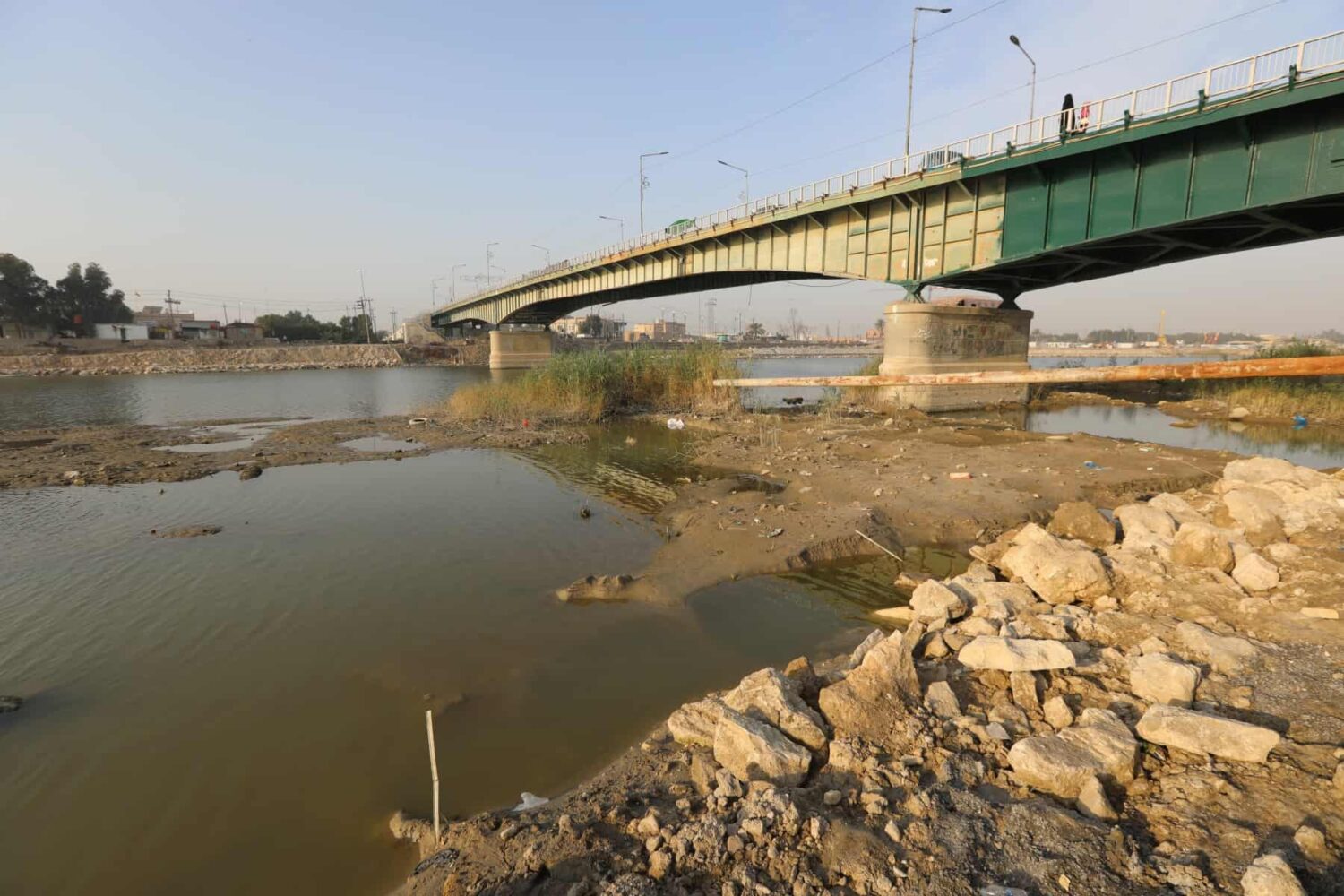NASIRIYAH, IRAQ – Iraq’s Tigris and Euphrates rivers have witnessed a sharp decrease in their levels in the south of the country, officials said Sunday, pledging to take urgent measures to ease water shortages.
In Nasiriyah, capital of the southern province of Dhi Qar, an AFP photographer saw the river bed of the mighty Euphrates dry in patches.
The water ministry blamed the situation in some southern provinces on “the low quantity of water reaching Iraq from neighboring Turkey”.
“This has triggered a sharp drop in the country’s water reserves,” it said in a statement.
The Tigris and the Euphrates both have their source in Turkey, and authorities in Iraq have long accused the Ankara government of withholding water in dams that choke the rivers, dramatically reducing flows into Iraq.
Iraqi authorities also accuse farmers of abusing water supplies and flouting restrictions to irrigate their lands.
Water scarcity hitting farming and food security are already among the “main drivers of rural-to-urban migration” in Iraq, the UN and several non-government groups said in June 2022.
According to official Iraqi statistics from last year, the level of the Tigris entering Iraq has dropped to just 35 percent of its average over the past century.
Water ministry spokesman Khaled Chamal said Sunday that Iraq was getting only 30 percent of the water it expected from the Tigris and the Euphrates.
Iraq regularly asks Turkey to release more water, and has imposed measures to ration water for agriculture and domestic use.
Water is also often held back in dams in Iraq’s north, triggering anger among residents in the south.
Chamal told AFP the latest drop in water levels in both the Tigris and Euphrates in the country’s south was “temporary”.
Authorities will increase levels by releasing water from Iraqi dams in the northern areas of Mosul, Dukan and Darbandikhan, he added.
“There should be positive results within the next two days,” he said.
After decades of conflict, oil-rich Iraq has been plagued by poverty, drought and desertification.
It is one of the five countries most exposed to impacts of climate change, according to the United Nations.
In December, the World Bank urged Iraqi authorities to modernize irrigation processes and farming methods, and review dam infrastructure.







